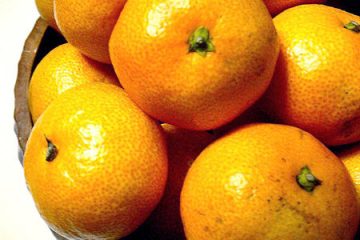A food writer friend of mine got a visit from the grammar police recently, who gave him a snoutful of snootiness over his use of "varietal" to describe wine grapes. His correspondent wrote the following: "One of my biggest peeves is the improper use of the term varietal in wine
Rice needs to be polished to make premium sake. But there's an arms race going on, and American consumers have something to do with it, because unlike so much about sake, we can easily understand numbers. Hollywood celebrities and Las Vegas high rollers are seeking out sakes with absurdly low
My whole wine world is shaken. What does Syrah taste like? Are floral aromas pretty? Is a "typical Bordeaux" supposed to taste like medicine and ashes? I don't know anymore. I've been to a Brettanomyces tasting at UC Davis. I described it on Twitter as spending a day in a
Palate Press has selected our top ten stories from 2012 and will publish a 2012 Redux article each weekday until January 4, 2013. These stories highlight our featured columnists, widely recognized contributors, and most popular works published through the year. The Palate Press editorial board hopes you enjoy these highlights as we look
This tale isn't yet 1000 years old. But it has kings, crusades, the cult of the Virgin, poverty, drunk clerics, extinct grapes, the Devil and the world's biggest wine bottle. And the irony is, the winery it's about is one of the most forward-thinking in France. You might think the
Turkish wines are historic, interesting and in many cases pretty good. And the Islamic ruling party would be happy for you to take more of them away from the country. Turkey is a fascinating place for wine researchers because it appears to be the birthplace of wine. The center of
Tasting notes are the hardest thing for me to write about wine. I have strong opinions about the elements of a good tasting note. But while I love a good argument, I have stayed out of this one because I don't feel comfortable telling other people how to write them.
Here's a call to arms: Let's call it "freshness." You know what I mean: that quality of wine that makes it food-friendly. That keeps it from sitting on your tongue like pudding, tiring your mouth. That refreshing quality. Which we have been scaring newcomers to wine by calling "acidity." I'm





